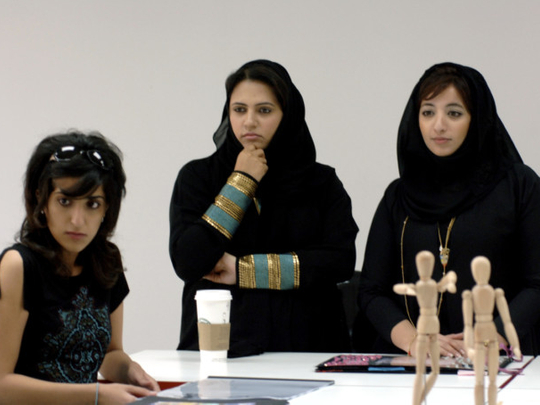
Even though your children might be a few years away from you packing them off to university, it’s worth keeping up to date with the latest employment trends and opportunities. The better informed you are, the better you can help them get the most out of their education and prepare for what might come next.
Ravi Panchanadan, CEO, Manipal Global Education, Mena, says, “In today’s fast-paced world, companies are increasingly looking to employ qualified and trained candidates rather than spend time equipping them with the knowledge and skills needed on the job, hence the demand for professional courses and degrees that are industry relevant is increasing.”
This global trend is reflected in the UAE, where, historically, degrees were not given priority in the job market, but are now seen as essential to securing quality employment, Panchanadan adds.
Data from online recruiter Naukrigulf.com shows that in the region, 60 per cent of jobs are open to graduates and above only, while 12 per cent of openings ask for postgraduates.
So when your children are looking at future career possibilities, bear in mind that degrees are certainly worth more than just the paper they’re printed on. A recent report from The Federal Reserve Bank of New York found that those with bachelor’s or associate’s degrees earn more money over their lifetimes than those who skip college, even after factoring in the cost of education. A person with a bachelor’s degree can expect to earn about $1.2 million (about Dh4.4 million) more, from ages 22 to 64, than someone with a high school diploma, while someone with an associate’s degree will bring in $325,000 more than someone with high school education, the news agency Associated Press said, quoting the report. That’s surely an encouragement to work hard at school.
Tarun Aggarwal, Business Head, Naukrigulf.com, says, “In the Gulf, employers view relevant skills and experience as primary selection criteria and education or training, hence, is implied. Our research indicates that just getting a degree is not a guarantee for higher salaries. It needs to be backed by demonstrable skills. But investing in a good degree is a good choice with long-term advantages.”
In her experience, Felice Hurst, Director at recruiter Hanson Search, believes that demand for a university degree is as high as 99 per cent in the UAE. “Clients often say that a degree in life would be equally acceptable for a more experienced candidate, but the reality is that most will end up having a [formal] degree.”
For 29-year-old Indian Chief Steward Sharan Bhinder Gupta the decision to complete her studies, which she left aged 17, was by no means easy. “For years I didn’t feel my education was incomplete. But recently, when thinking about the future, I knew that a college degree was the first step to pursuing anything else,” she says.
Although she can’t get to regular classes because of a hectic work schedule, she found and enrolled in a flexible degree in tourism studies at the Indira Gandhi National Open University in New Delhi.
It is obvious that students expect a return on their educational investments and are clear about the reasons for choosing a particular course over another.
Peter Hawke, Director of Marketing and Student Recruitment, University of Wollongong in Dubai, says, “The UAE’s knowledge-based economy makes high-level qualification a necessity. Last year 8-10 per cent of undergraduate enrolments were older than 25. The job market and their current employers often push them to get that degree. Anecdotal evidence suggests that the salary jump is between 5 and 20 per cent on completing their studies.”
That’s something 29-year-old Filipino Jim Joquico hopes will help him stand out from the crowd when he makes his next career move. Although the Dubai-based Public Relations Executive already has a bachelor’s degree, he is now studying marketing strategy at Cornell University. “I felt that a bachelor’s degree alone wasn’t going to help me progress as quickly as I had hoped, so I had to work on improving my profile by adding more educational credentials,” he says.
As you prepare your child for the new school year, being aware of what’s happening in the world of work will make you better placed to help them succeed — whatever their calling.











